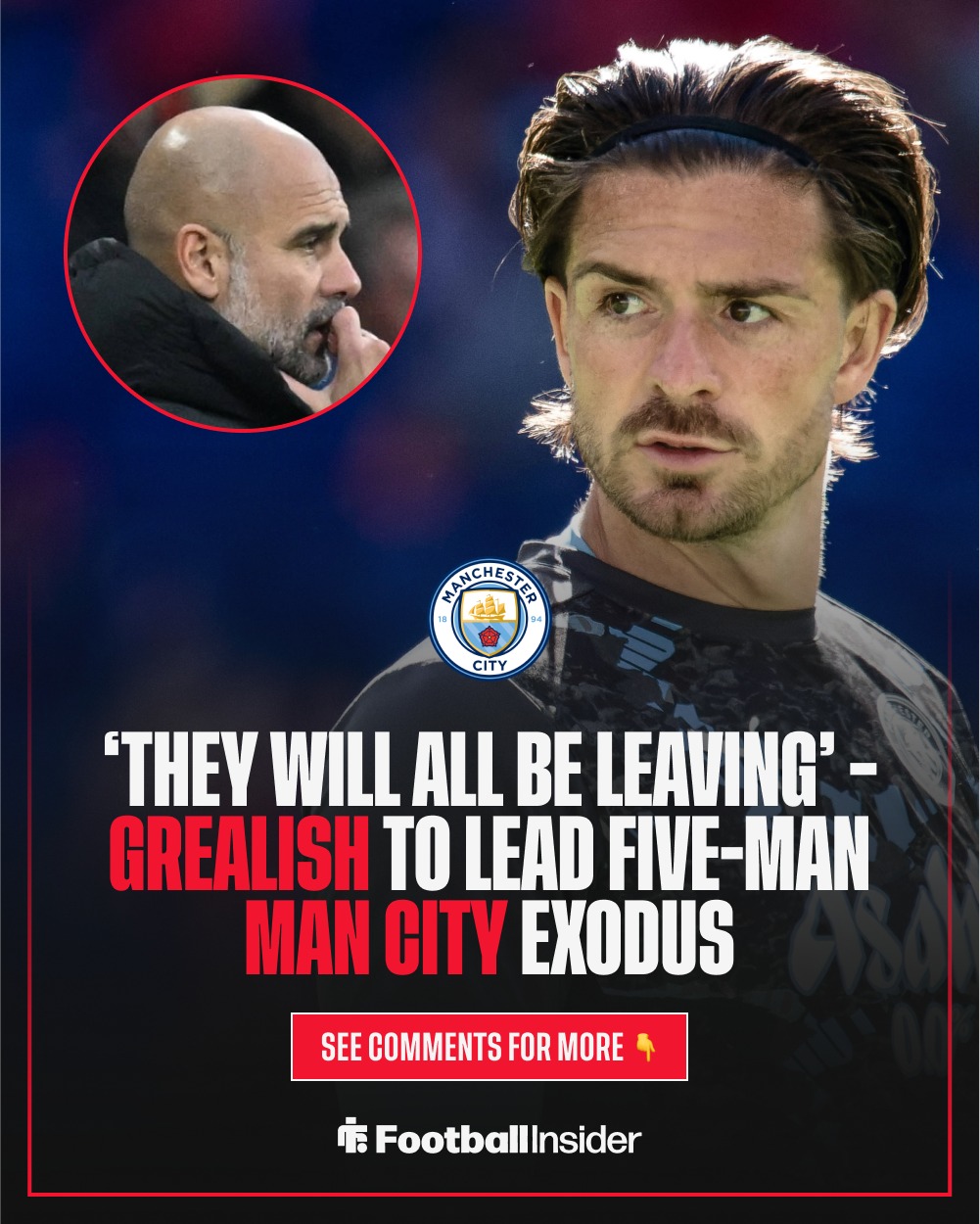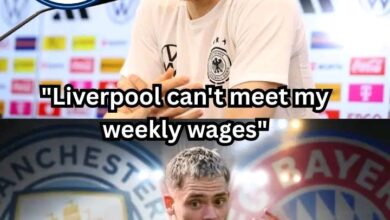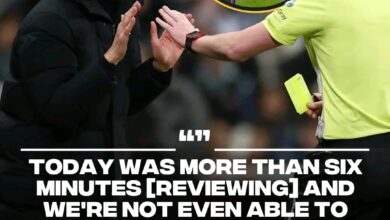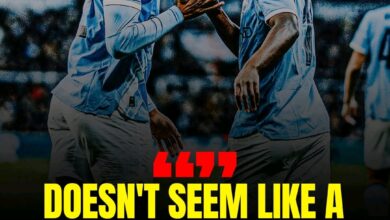‘They will all be leaving’ – Jack Grealish to lead five-man Man City exodus

Manchester City’s Summer Clearout: Analyzing the Five-Player Exodus Strategy
Introduction
Manchester City’s approach to the summer transfer window has taken a decisive turn toward squad optimization, with reports suggesting that up to five players could depart before the window closes. At the center of this potential exodus stands Jack Grealish, the England international whose £100 million arrival in 2021 was heralded as a statement signing but whose Etihad Stadium future now appears increasingly uncertain. This strategic reshuffling reflects Pep Guardiola’s evolving vision for his squad composition and his desire to create a more streamlined, focused group capable of competing across multiple fronts while maintaining the tactical flexibility that has become synonymous with Manchester City’s success.
Jack Grealish: From Record Signing to Departure Candidate
Jack Grealish’s trajectory at Manchester City represents one of modern football’s most intriguing case studies in player adaptation and tactical evolution. When City broke the British transfer record to secure his services from Aston Villa for £100 million, the expectation was that Grealish would become a cornerstone of Guardiola’s attacking philosophy. However, his journey at the Etihad has been marked by periods of brilliance interspersed with extended spells on the periphery.
The statistics paint a stark picture of Grealish’s declining influence within Guardiola’s system. Last season’s seven Premier League starts represent a dramatic reduction from his initial expectations and highlight the competitive nature of City’s attacking options. This reduction in playing time cannot be attributed solely to form or fitness issues; rather, it reflects Guardiola’s tactical evolution and his preference for players who offer specific qualities that align with his current strategic vision.
Grealish’s playing style, characterized by his ability to retain possession, draw fouls, and create opportunities through individual brilliance, initially seemed perfectly suited to City’s possession-based approach. However, as Guardiola’s tactical demands have become increasingly nuanced, the manager has shown preference for players who offer more direct attacking threat or greater tactical versatility in different phases of play.
The England international’s situation at City reflects broader challenges facing creative players in Guardiola’s system. The Spanish coach’s tactical requirements often prioritize positional discipline and specific movement patterns over individual flair, creating situations where naturally gifted players must adapt their games significantly to earn regular opportunities.
Everton’s reported interest in Grealish represents a potentially perfect solution for all parties involved. The Toffees’ need for creative inspiration and established Premier League quality aligns with Grealish’s desire for regular football and the opportunity to rediscover his best form. For Everton, securing a player of Grealish’s caliber would represent a significant statement of intent and could provide the attacking catalyst needed for their Premier League ambitions.
The financial dynamics of a potential Grealish departure present both opportunities and challenges for Manchester City. While his substantial wages represent a significant financial commitment, his departure would free up both salary cap space and squad positions for alternative signings or youth development opportunities.
James McAtee: The Academy Graduate’s Crossroads
James McAtee’s inclusion in the potential departure list highlights the complex decisions facing academy graduates at elite clubs. The 21-year-old midfielder has progressed through Manchester City’s youth system with distinction, demonstrating the technical ability and tactical intelligence that characterizes the club’s development philosophy.
McAtee’s development journey exemplifies both the opportunities and challenges within City’s academy structure. His technical ability and understanding of Guardiola’s tactical principles mark him as a product of the club’s sophisticated development approach. However, the pathway to first-team football remains extremely competitive, with established international players occupying positions across the midfield and attacking areas.
The midfielder’s loan spell experiences have provided valuable insights into his readiness for senior football while highlighting areas for continued development. These temporary moves serve multiple purposes: they offer McAtee regular competitive football, provide evaluation opportunities for City’s coaching staff, and demonstrate the player’s ability to adapt to different tactical systems and competitive environments.
Sheffield United’s interest in McAtee during previous loan spells demonstrated his capability at Championship level, but questions remain about his readiness for consistent Premier League football. The gap between youth football, loan experiences, and regular first-team opportunities at an elite club like Manchester City represents one of modern football’s most challenging transitions.
From City’s perspective, McAtee’s potential departure reflects strategic squad management rather than doubts about his ability. The club’s commitment to youth development must be balanced against immediate competitive needs and the reality of limited squad spaces in UEFA and Premier League competitions.
The financial implications of McAtee’s departure would be modest in immediate terms but could represent significant long-term value. Academy graduates often command substantial fees when sold to other clubs, particularly when they possess Premier League experience and technical development from elite training environments.
Strategic Squad Management Under Guardiola
Keith Wyness’s insights into Guardiola’s squad management philosophy provide valuable context for understanding Manchester City’s current transfer approach. The former Everton CEO’s observation that Guardiola wants a “smaller squad” reflects broader tactical and management principles that have characterized the Spanish coach’s most successful periods.
Guardiola’s preference for smaller, more focused squads stems from both tactical and psychological considerations. Tactically, working with fewer players allows for more intensive coaching sessions and clearer role definition, enabling players to understand their specific responsibilities within different tactical frameworks. Psychologically, smaller squads often create healthier competitive environments where players feel more connected to the team’s objectives and more likely to receive meaningful opportunities.
The concept of squad optimization extends beyond simple numbers to encompass player profiles and tactical compatibility. Guardiola’s most successful teams have featured players capable of performing multiple roles while maintaining high standards across different positional requirements. This versatility allows for tactical flexibility without requiring extensive squad depth in every position.
Manchester City’s early summer transfer activity, including the acquisitions of players like Rayan Cherki and Tijjani Reijnders, demonstrates a proactive approach to identifying and securing priority targets before focusing on squad optimization through departures. This strategy minimizes the risk of being unable to replace departed players while ensuring that incoming reinforcements can integrate properly before competitive fixtures commence.
The “new revitalized Pep with the new moustache” reference, while lighthearted, reflects genuine observations about Guardiola’s continued evolution as a manager. His ability to reinvent his tactical approaches and motivational methods has been crucial to maintaining success over extended periods at elite clubs.
The Loan System: Development and Strategic Planning
The mention of three additional players potentially departing on loan highlights Manchester City’s sophisticated approach to player development and squad management. The loan system serves multiple strategic purposes within the club’s broader planning framework, providing development opportunities while maintaining long-term control over promising assets.
For young players, loan spells offer invaluable experience in competitive environments that differ significantly from academy football. The intensity, physicality, and tactical complexity of senior football cannot be replicated in development matches, making loan experiences essential for player growth and evaluation.
From Manchester City’s perspective, the loan system provides flexibility in squad management while protecting long-term investments. Players on loan remain under contract, allowing the club to recall them if circumstances change or to sell them with retained value if they fail to develop as expected.
The strategic selection of loan destinations reflects careful consideration of player needs, tactical compatibility, and development objectives. Clubs with playing styles similar to Manchester City’s provide continuity in tactical education, while different approaches can broaden players’ understanding and adaptability.
The financial benefits of the loan system include reduced wage costs for players not contributing to the first team while maintaining their development and market value. Additionally, loan agreements often include performance-based clauses that can generate revenue if players achieve specific objectives.
Financial Fair Play and Squad Cost Management
Manchester City’s approach to squad optimization must be understood within the context of Financial Fair Play regulations and broader cost management strategies. The club’s ongoing legal challenges regarding historical FFP compliance add complexity to current transfer decisions and emphasize the importance of demonstrating responsible financial management.
Player departures provide immediate financial benefits through reduced wage costs and potential transfer fees. For high-earning players like Grealish, the financial impact of departure extends beyond simple salary savings to encompass performance bonuses, image rights payments, and other contractual obligations.
The strategic timing of player departures can influence FFP calculations, particularly regarding amortization of transfer fees and profit recognition from academy graduates. These technical accounting considerations often influence the timing and structure of transfer deals beyond purely sporting considerations.
UEFA’s evolving FFP regulations, including new squad cost ratios and luxury tax mechanisms, create additional incentives for efficient squad management. Clubs that maintain lower squad costs relative to revenue enjoy greater flexibility in future transfer windows and reduced regulatory scrutiny.
Tactical Evolution and System Adaptation
Guardiola’s desire for squad optimization reflects his continued tactical evolution and adaptation to changing competitive environments. The Spanish coach’s success has consistently been built on his ability to modify his systems while maintaining core philosophical principles about possession, pressing, and positional play.
The current Manchester City squad features players acquired for different tactical systems and competitive contexts. As Guardiola’s approach continues to evolve, some players inevitably become less suited to new tactical requirements, creating natural departure candidates regardless of their individual quality or past contributions.
The integration of new signings often requires accommodation within existing squad structures, sometimes displacing established players whose roles become redundant or reduced. This natural evolution reflects the dynamic nature of elite football and the importance of continuous adaptation for sustained success.
Player departures also create opportunities for tactical experimentation and system modification. Removing certain player profiles can encourage different tactical approaches or allow for the development of alternative strategic options that might not be possible with larger, more diverse squads.
Market Dynamics and Transfer Timing
The timing of Manchester City’s potential player exodus reflects broader market dynamics and strategic considerations about transfer window management. Late-window departures often command lower fees but provide clubs with better understanding of their squad needs and available alternatives.
For players seeking moves, late-window transfers can provide better negotiating positions as clubs become more desperate to complete deals before deadlines. However, this timing also limits options and can result in less favorable personal terms or destinations.
The interconnected nature of modern transfer markets means that Manchester City’s decisions influence multiple other clubs and player movements. Grealish’s departure to Everton, for example, could trigger additional moves as other clubs adjust their strategies based on changed circumstances.
International competition schedules and domestic league preparations also influence transfer timing, with clubs preferring to complete major squad changes before intensive training periods and competitive fixtures commence.
Long-Term Strategic Implications
Manchester City’s current squad optimization extends beyond immediate tactical needs to encompass long-term strategic planning and competitive positioning. The decisions made during this transfer window will influence the club’s capabilities across multiple seasons and competitions.
Youth development pathways require careful management to ensure that promising academy graduates receive appropriate opportunities while maintaining competitive standards. The balance between promoting internal talent and acquiring external reinforcements represents one of elite football management’s most complex challenges.
The club’s reputation among potential future signings can be influenced by how current player departures are managed. Demonstrating respect for departing players and facilitating positive moves enhances Manchester City’s attractiveness to future transfer targets and their representatives.
Financial sustainability remains crucial for long-term success, requiring careful balance between competitive investment and responsible cost management. The current squad optimization contributes to this sustainability while positioning the club for continued success across multiple competitions.
Conclusion: Strategic Excellence in Squad Management
Manchester City’s potential five-player exodus represents sophisticated squad management that balances multiple competing priorities while maintaining focus on competitive excellence. The strategic approach to player departures demonstrates the club’s evolution under Guardiola’s guidance and their commitment to continuous improvement and adaptation.
Jack Grealish’s likely departure, while surprising given his transfer fee and profile, reflects the ruthless decision-making required at elite levels of football. His potential move to Everton could benefit all parties involved while demonstrating Manchester City’s commitment to player welfare and strategic squad optimization.
James McAtee’s situation highlights the challenges facing academy graduates in competitive environments while showcasing the club’s commitment to youth development and career progression. The strategic use of loans and permanent departures ensures that promising players receive appropriate opportunities regardless of immediate first-team availability.
The broader implications of these potential departures extend beyond individual player movements to encompass tactical evolution, financial management, and long-term strategic planning. Guardiola’s vision for a smaller, more focused squad reflects his continued adaptation and pursuit of competitive excellence across multiple fronts.
As the transfer window progresses toward its conclusion, Manchester City’s approach to squad optimization will likely serve as a model for other elite clubs facing similar challenges. The balance between competitive needs, financial sustainability, and player development represents modern football management at its most sophisticated level.
The success of this strategic approach will ultimately be measured in competitive performance and long-term sustainability. However, the careful planning and strategic thinking evident in these potential departures suggest that Manchester City remains committed to the excellence and innovation that have characterized their recent success under Guardiola’s guidance.















